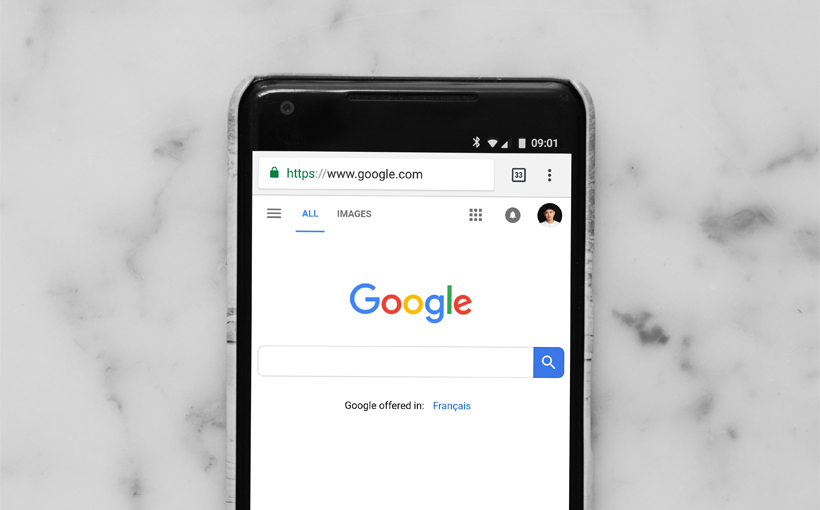There’s quite a bit to unpack here. It has taken a bit of time after getting my news to really articulate everything into a concise story. It’s always hard to put your ‘failures’ on display but I aim to grow from my experiences. Sharing them with others helps me do that. After reading I hope I can impart the importance of taking every opportunity and finding the value and growth in failure. As that still stands as one of my biggest challenges in my personal development.
This is my experience completing a phone technical interview for Google December 2018.
Udacity Front End Web Developer Nanodegree
If you would like to check out my experience completing this nanodegree, see this blog article. As a short summary, Udacity is a website that offers courses on various subjects, including technical concepts. I was lucky enough to receive a scholarship for the nanodegree I completed. In fact Google was a collaborator in that specific nanodegree. While Udacity is great at walking you through projects and new skills, they also help you in your career aspirations after the fact. They continuously provide you support and overall it has been a really fantastic experience.
I bring this up because this is what helped catch me some attention from a Google recruiter. I never submitted an application to them but rather a recruiter had approached me. The first time I was still in school and it wasn’t the best time to pursue an opportunity at Google, I needed to finish my degree.
The second time around, I had graduated and was able to be more flexible and open to opportunities like this.
The Google Recruiter Call
I was expecting some rigidity from the call. After all the end point was a technical interview. But to my surprise things were quite calm and relaxed. I felt comfortable opening up about my skills. Regardless of the company I don’t want to be placed in a position where it’s hard to succeed. Or one I have no interest in overall. I aim to be myself and quite candid on what I know and don’t know. But I’m also able to provide through my history and continuous effort to learn new things.
I’m happy to take on challenges; creating ignites my passion. After all was said and done, a position was narrowed down for my skill set and the next step was offered to me. A technical phone interview. My recruiter provided many many resources to help me be successful. And with work being a little tight on flexibility with hours, I chose to schedule it out about a month.
Preparation for the Google Technical Interview
After looking through all the materials and getting my questions answered from my recruiter, I have to say, I felt overwhelmed. Many of the proposed topic categories, data structures, etc. were things I hadn’t used in years. Or even maybe only visited in one or two classes while in college. It was daunting. And being completely honest, after researching what others said about the experience, I made no progress for the first week and a half.
Nerves and Procrastination
I had let my insecurities get the best of me and began procrastinating to avoid the opportunity that was given to me. I had debated canceling all together. But ‘you never know until you try’ was always in the back of my mind and I slowly began to come around as I rationalized the possible outcomes.
- I succeed and pass this interview step. I would then need to go through multiple other stressful interviews but would still have a chance at the position.
- I fail and do not pass this interview step. I would be disappointed but ultimately nothing about my current situation would change.
So what was I so afraid of? Not making the cut just meant things go on like they had before I even had the call with the recruiter. I found I wan’t afraid of not succeeding to the next step, I was afraid of looking stupid. I was afraid I’d get on that call for 45 minutes, be asked a question, and be unable to articulate anything onto the Google doc.
It’s true I’d probably never interact with that person again if I did so poorly, but that is one of my personal obstacles to navigate. I don’t like to look uneducated. In a technology field that will be a very common experience and I’m slowly taking steps to change how I think and therefore how I feel.
Time to Buckle Down
As the last two weeks of available study time were approaching, I was struck with a cold. A week long cold. Now there was one week of available study time and I was more anxious than ever. I ended up asking for an extension of time and was graciously accommodated. Feeling a bit better physically and emotionally I picked the materials back up.
I fell into study methods I used as school as well as some pointers given to me from my recruiter
- Read through Cracking the Coding Interview (I do recommend it, it’s got a great review for those less used concepts)
- Categorize related material
- Write (not type) out the information
- Do examples for the concepts I need the most strength in
- Do these example on paper or in a plain text editor (to simulate the interview conditions)
- Talk through the thought process as I do the examples, do not code silently
- Review functions, libraries, etc from my chosen language (JavaScript)
And I did those things paced out over the time I had left. While in school I notoriously crammed the night or so before a test. For the most part it worked out but I didn’t want to have that added stress for this opportunity. So I tapped into that sleeping self-discipline and did about 2-3 hours a night using the tips above.
And then, it was time.
Attending the Google Technical Interview
There were a lot of thoughts and emotions going around inside my head as I patiently waited for the phone call, sitting at my desk, Google doc open. I ended up using a tactic that I’ve had really good success with in the pass. Act like it doesn’t matter if you get it. Now I don’t mean in a snide or condescending way, I mean, frame yourself like it is not the end of the universe itself if it does not go well. I find this calms me and I put a lot less pressure on myself in the moment. Even though I might not believe it at the time, acting as such kind of forces you into the belief to some degree. Sometimes I can only get it about half way (but something is better than nothing in these situations).
The Good
I talked through my process. When I caught myself staying silent, I perked back up and verbally ran through the logic again.
I asked questions. I asked for restraints, edge cases, and format of the data (both input and output). This helped me structure my solution and catch any missed cases my code may miss.
The Bad
I got too caught up in showing how I could start with a sub-par run time and refactor it into a better run time. I fear I spent too much time in the same spot and looked uncertain on where I should go. If I were to do it again, I would start with my first instinct instead of trying to do anything extra. Then try to improve upon it once complete.
Getting in that ‘stuck’ period did leave me a bit frazzled and I ended up running out of time for the question.
However, in hindsight it was a very fair question and was easier than anything I was expecting after doing all that research. I made it harder than it had to be after over analyzing it.
The Takeaway
I suppose ultimately you can figure I wasn’t chosen to move forward to the next stage. But, I was okay with that. I needed some time to relax and recharge and I definitely wasn’t crushed. In fact, it seems, most people in that particular time period of hiring were 2nd time attempts. And I was offered the same opportunity about 8 months to a year down the road.
Who knows where I’ll be then but I’m happy to wait, do projects I’m passionate about, and find out. More than enough time to continue to work on my personal obstacles as well as my professional ones.
—–
If you’d like to chat with me about this, don’t hesitate to reach out by commenting below or drop me an email – nicole@ngrinsell.com


Recent Comments